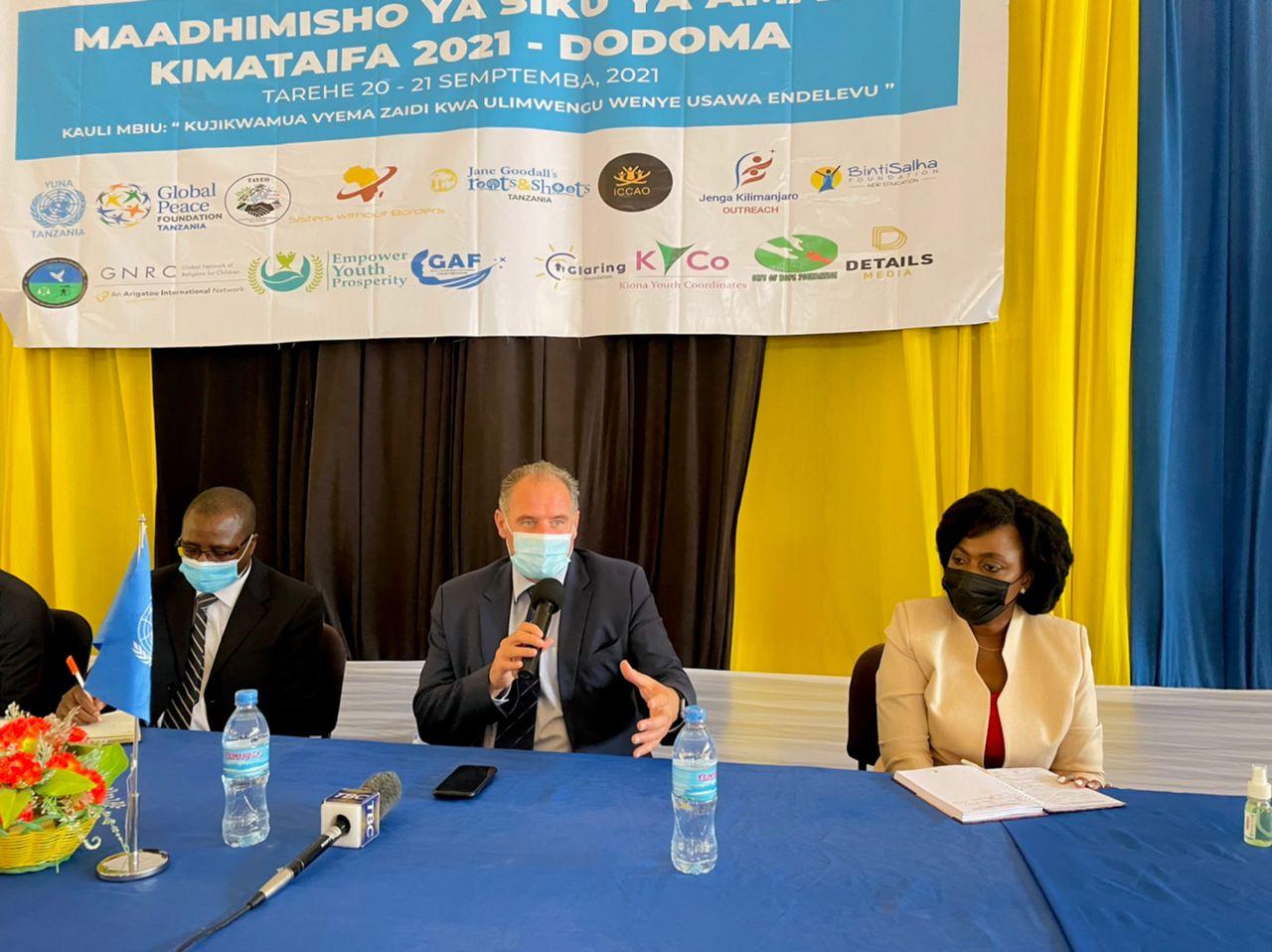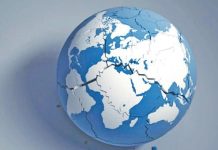Africa-Press – Tanzania. THE United Nations Resident Coordinator, Mr Zlatan Milišić, on Tuesday underscored the need for countries to think creatively and collectively about how to help each other recover from Covid-19 economic effects as the world commemorates the International Day of Peace.
The International Day of Peace, sometimes officially known as World Peace Day, is a United Nations-sanctioned holiday observed annually on 21 September.
Speaking at an event to mark the Day nationally in Dodoma, Mr Milišić said it was high time to promote peace and the public should come up with the best options on how to build resilience and how to transform the world into one that is healthier, more equal, inclusive, and sustainable.
The commemorations involved, among other activities, tree planting and awareness on the importance to take care of the planet and the environment.
“As many of you may be aware that the United Nations was established in 1945, and one of the primary goals for its establishment was to promote Peace and Security around the world after the horrors of World War II,” he said.
Adding: “World Peace Day was established later in 1981 and endorsed in 2001 by a UN General Assembly Resolution which aimed to remind us over reflecting on the importance of peace.”
Mr Zlatan said during this Day around the world, governments and groups involved in armed conflicts are encouraged to consider ceasefire and non-violence.
The theme for this year’s commemoration is, ‘Recovering better for an equitable and sustainable world.’
The theme reminds on the need to take precaution and work to overcome the Covid-19 pandemic.
“We are inspired to think creatively and collectively about how, as countries, can help each other recover better, how to build resilience, and how to transform our world into one that is healthier, more equal, inclusive, and sustainable” he insisted.
He added that as the world begins to recover from the pandemic, there are many issues to look at in order to achieve the development agenda.
In Tanzania, this means getting back on track to achieve the five-year national development priorities, the 2030 Agenda for Sustainable Development and the AU Agenda 2063.
“In countries all over the world, inequalities have been exacerbated, and we have seen more people experiencing hunger and falling back into poverty,” he said.
Due to the pandemic, he said, countries have also lost economic gains and progress made in women’s rights.
“As we embark on this road for regaining, it is important that peace be the foundation for recovery. The 17 Sustainable Development Goals (SDGs) recognize that peace and stability are crucial for us to achieve social, economic and environmental goals of development,” said Zlatan.
He observed that conflict and instability often result in more poverty and hunger, more violations of human and women’s rights and less access to services such as education and health.
The areas with conflicts are also vulnerable to public health crises such as Covid-19 because it makes it much harder to fight the virus when there is war.
The United Nations system appreciates that Tanzania has been the bedrock of peace and stability, with a rich history of bringing countries together and helping to build peace in neighbouring countries in the regions of East and Southern Africa.
The stability, he said, contributed to the growth of the country’s economy at a very high rate over the years.
He thanked the government’s contribution to the UN peacekeeping missions by offering soldiers who are risking their lives in supporting peacekeeping missions all over the world.
The country also hosts over 300,000 refugees who fled violence and conflicts in the Democratic Republic of Congo and Burundi.
He used the platform to present a message from the United Nations Secretary-General, Antonio Gutieres.
In his statement, Mr Gutieres says: “This year’s International Day of Peace comes at a crisis point for humanity. COVID-19 has turned our world upside-down. Conflicts are spinning out of control.”
He added: “the climate emergency is worsening. Inequality and poverty are deepening. And mistrust and division are driving people apart at a time when solidarity and collaboration are needed more than ever. Peace is not a naïve dream. It’s a light in the darkness. Guiding us to the only pathway to a better future for humanity. Let’s walk the pathway of peace as if our lives depended on it. Because they do.”
He reaffirmed UN’s commitment to continue working with all partners to support governments and people to maintain and promote peace, achieve the SDGs and recover better for a more sustainable and equitable Tanzania.
Occasioning the day, Minister of State in the Vice President’s Office, Union Affairs and Environment, Mr Selemani Jafo, insisted on the need to promote peace in all avenues as it is key in attaining the industrial economy and improving welfare.
He said it is high time members of the public shy away from all forms of gender violence that in one way or another will infringe individual’s peace.







